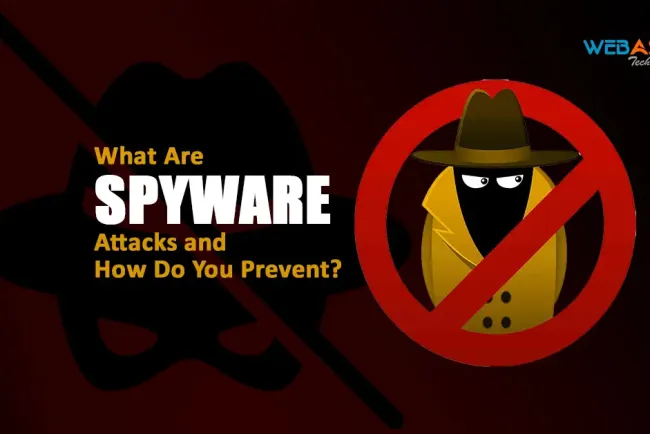CEH vs CPENT | Why CPENT is the Next-Level Ethical Hacking Certification?
The Certified Ethical Hacker (CEH) and Certified Penetration Testing Professional (CPENT) are two of the most recognized cybersecurity certifications offered by EC-Council. While CEH provides a foundation in ethical hacking, CPENT is a next-level penetration testing certification designed for experienced cybersecurity professionals. CEH focuses on theoretical knowledge of hacking tools, attack vectors, and security countermeasures, making it suitable for beginners. In contrast, CPENT is a hands-on practical exam where candidates must perform real-world penetration testing in a 24-hour controlled environment. This blog compares CEH vs CPENT, covering their exam structure, difficulty level, career prospects, and real-world applications. It explains why CPENT is a superior choice for those looking to advance their career in penetration testing, red teaming, and offensive security.

Introduction
In the rapidly evolving world of cybersecurity, ethical hackers and penetration testers play a crucial role in identifying vulnerabilities and protecting organizations from cyber threats. Certifications are essential for validating the skills and expertise required in ethical hacking and penetration testing. Among the most sought-after certifications, Certified Ethical Hacker (CEH) and Certified Penetration Testing Professional (CPENT) stand out.
While both certifications are offered by EC-Council, they serve different purposes and cater to professionals at different levels. CEH is an entry-level certification that provides an overview of hacking methodologies and tools, whereas CPENT is an advanced certification designed for professionals who want to demonstrate real-world penetration testing skills in a live environment.
This blog will provide an in-depth comparison of CEH vs CPENT, highlighting why CPENT is the next-level certification for ethical hackers and penetration testers.
What is CEH (Certified Ethical Hacker)?
The Certified Ethical Hacker (CEH) certification is one of the most recognized cybersecurity certifications globally. Offered by EC-Council, it is designed for individuals who want to understand hacking techniques, attack methodologies, and security countermeasures.
Key Features of CEH:
-
Focus: Theoretical understanding of hacking techniques, tools, and attack vectors.
-
Exam Format: 125 multiple-choice questions (MCQs).
-
Duration: 4 hours.
-
Prerequisites: No formal experience required, but training is recommended.
-
Recognition: Recognized globally for entry-level cybersecurity roles.
-
Hands-on Experience: Limited, as the exam is theory-based.
-
Ideal For: Beginners who want to enter the field of ethical hacking.
Topics Covered in CEH:
-
Footprinting and Reconnaissance
-
Scanning Networks
-
Enumeration
-
System Hacking
-
Malware Threats
-
Sniffing
-
Social Engineering
-
Denial-of-Service Attacks
-
Session Hijacking
-
Web Server and Web Application Attacks
-
SQL Injection
-
Cryptography
While CEH provides a strong foundation in ethical hacking, it lacks the real-world penetration testing experience that is crucial for professionals aiming for advanced security roles.
What is CPENT (Certified Penetration Testing Professional)?
The Certified Penetration Testing Professional (CPENT) is an advanced penetration testing certification designed by EC-Council. It focuses on hands-on penetration testing in real-world enterprise environments. CPENT is considered a next-level certification compared to CEH, as it requires practical experience and problem-solving skills.
Key Features of CPENT:
-
Focus: Enterprise-level penetration testing with a focus on real-world scenarios.
-
Exam Format: 24-hour hands-on exam (divided into two 12-hour sessions).
-
Duration: Two sessions of 12 hours each, testing real-world hacking skills.
-
Prerequisites: Recommended for experienced penetration testers.
-
Recognition: Highly valued in penetration testing and red teaming roles.
-
Hands-on Experience: Fully hands-on, testing the candidate’s ability to penetrate networks and exploit vulnerabilities.
-
Ideal For: Professionals who want to work in penetration testing, red teaming, and advanced cybersecurity roles.
Topics Covered in CPENT:
-
Advanced Windows Attacks
-
Exploiting Active Directory
-
IoT (Internet of Things) Hacking
-
Wireless Network Penetration Testing
-
Cloud Security Exploitation
-
Web Application and API Penetration Testing
-
Binary Exploitation and Buffer Overflow Attacks
-
Advanced Pivoting and Lateral Movement
-
Privilege Escalation Techniques
-
Bypassing Network and Host-Based Security Controls
CPENT goes beyond theoretical knowledge by requiring candidates to perform live penetration tests in an enterprise-level environment, making it a more advanced and practical certification than CEH.
Comparison: CEH vs CPENT
The following table highlights the major differences between CEH and CPENT:
| Feature | CEH (Certified Ethical Hacker) | CPENT (Certified Penetration Testing Professional) |
|---|---|---|
| Difficulty Level | Beginner | Advanced |
| Exam Format | 125 Multiple-Choice Questions (MCQs) | 24-Hour Hands-On Practical Exam |
| Real-World Application | Limited | Extensive |
| Hands-on Experience | Optional labs (not required for certification) | Required (Live Penetration Testing) |
| Focus | Hacking tools, methodologies, and countermeasures | Real-world penetration testing and exploitation techniques |
| Topics Covered | General hacking concepts, tools, and countermeasures | Advanced penetration testing, IoT, cloud security, and binary exploitation |
| Ideal For | Beginners entering cybersecurity | Experienced penetration testers, red teamers |
| Job Roles | Security Analyst, SOC Analyst, Cybersecurity Consultant | Penetration Tester, Red Team Operator, Security Researcher |
| Industry Recognition | Well-known but basic | Highly respected for advanced security roles |
While CEH is good for beginners, CPENT is a real-world penetration testing certification that prepares professionals for highly technical security roles.
Why CPENT is the Next-Level Certification for Ethical Hackers?
1. Hands-on, Real-World Penetration Testing
Unlike CEH, which is theory-based, CPENT requires candidates to perform actual penetration tests in a controlled environment. The 24-hour practical exam simulates real-world cybersecurity challenges.
2. Covers Advanced Cybersecurity Topics
CPENT includes complex penetration testing techniques, such as:
-
Active Directory Exploitation
-
Cloud Security Testing
-
IoT Hacking
-
Binary Exploitation & Buffer Overflows
These skills are not covered in CEH, making CPENT a superior certification for ethical hackers.
3. Industry Demand for Practical Skills
Employers now prefer hands-on experience over theoretical knowledge. CPENT validates that candidates can perform real-world penetration testing, making them more valuable in the job market.
4. Higher Salary Potential
Penetration testers and red teamers earn significantly more than CEH-certified professionals. CPENT opens doors to higher-paying jobs in offensive security roles.
5. Recognized for Red Team Operations
Red teaming involves simulating real-world attacks against organizations. CPENT is recognized for its real-world red team training, whereas CEH is more focused on basic ethical hacking concepts.
Conclusion
If you are new to cybersecurity and want to learn the basics of ethical hacking, CEH is a good starting point. However, if you want to become a penetration tester, red teamer, or offensive security expert, CPENT is the next-level certification you should pursue.
With its real-world penetration testing approach, hands-on practical exam, and advanced security topics, CPENT outperforms CEH in preparing professionals for highly technical cybersecurity roles.
FAQs
What is CEH (Certified Ethical Hacker)?
CEH is an entry-level certification by EC-Council that covers hacking techniques, attack methodologies, and security countermeasures.
What is CPENT (Certified Penetration Testing Professional)?
CPENT is an advanced penetration testing certification that focuses on real-world hacking skills in enterprise environments.
Which certification is more advanced, CEH or CPENT?
CPENT is more advanced than CEH as it involves hands-on penetration testing in a controlled 24-hour practical exam.
Who should take CEH?
CEH is ideal for beginners who want to start a career in ethical hacking and cybersecurity.
Who should take CPENT?
CPENT is for experienced cybersecurity professionals who want to specialize in penetration testing and red teaming.
What topics are covered in CEH?
CEH covers topics such as footprinting, scanning, malware threats, session hijacking, web attacks, and cryptography.
What topics are covered in CPENT?
CPENT includes Active Directory exploitation, IoT hacking, cloud security penetration testing, binary exploitation, and advanced pivoting.
Does CEH have a practical exam?
No, the CEH exam consists of 125 multiple-choice questions (MCQs) with no practical assessment.
Is CPENT fully hands-on?
Yes, CPENT is a 100% practical certification where candidates must perform penetration tests in a real-world simulated environment.
What is the exam duration for CEH?
The CEH exam lasts 4 hours and consists of 125 MCQs.
What is the exam duration for CPENT?
The CPENT exam is 24 hours, split into two 12-hour sessions.
What are the prerequisites for CEH?
There are no strict prerequisites, but attending EC-Council’s CEH training is recommended.
What are the prerequisites for CPENT?
Candidates should have prior experience in penetration testing or have completed CEH before attempting CPENT.
Which certification is better for penetration testers?
CPENT is better suited for penetration testers as it involves real-world hacking scenarios.
Which certification is more recognized in the cybersecurity industry?
Both are recognized, but CPENT is more valuable for penetration testing and red teaming roles.
Can I take CPENT directly without CEH?
Yes, but prior knowledge of penetration testing is recommended before attempting CPENT.
What job roles can I get with CEH?
CEH-certified professionals can work as Security Analysts, SOC Analysts, and Ethical Hackers.
What job roles can I get with CPENT?
CPENT-certified professionals can work as Penetration Testers, Red Team Operators, and Security Consultants.
Does CPENT include cloud security testing?
Yes, CPENT covers cloud security penetration testing, which is not included in CEH.
How much does the CEH exam cost?
The CEH exam costs around $1,199, depending on the country and training provider.
How much does the CPENT exam cost?
The CPENT exam costs around $1,999, as it includes a live practical test environment.
Which certification provides better salary prospects?
CPENT-certified professionals usually earn higher salaries due to their advanced penetration testing skills.
Is CEH enough to become a penetration tester?
No, CEH alone is not enough for penetration testing. You need CPENT or OSCP for advanced penetration testing roles.
Is CPENT harder than CEH?
Yes, CPENT is significantly harder as it requires practical penetration testing skills, while CEH is theory-based.
Which certification is better for red teaming?
CPENT is better for red teaming as it includes advanced exploitation techniques and lateral movement.
Can CEH help me get a cybersecurity job?
Yes, CEH can help you get entry-level cybersecurity jobs, but for advanced roles, CPENT is recommended.
How long does it take to prepare for CEH?
On average, it takes 2-3 months to prepare for the CEH exam.
How long does it take to prepare for CPENT?
CPENT preparation may take 4-6 months, as it involves extensive hands-on practice.
Does CPENT replace CEH?
No, CPENT does not replace CEH, but it serves as a next-level certification for ethical hackers.
Which certification should I choose: CEH or CPENT?
-
If you are a beginner, go for CEH.
-
If you have experience and want to become a penetration tester, choose CPENT.
Will CPENT give me real-world cybersecurity experience?
Yes, CPENT provides practical, real-world penetration testing experience, unlike CEH.













![Top 10 Ethical Hackers in the World [2025]](https://www.webasha.com/blog/uploads/images/202408/image_100x75_66c2f983c207b.webp)

![[2025] Top 100+ VAPT Interview Questions and Answers](https://www.webasha.com/blog/uploads/images/image_100x75_6512b1e4b64f7.jpg)








